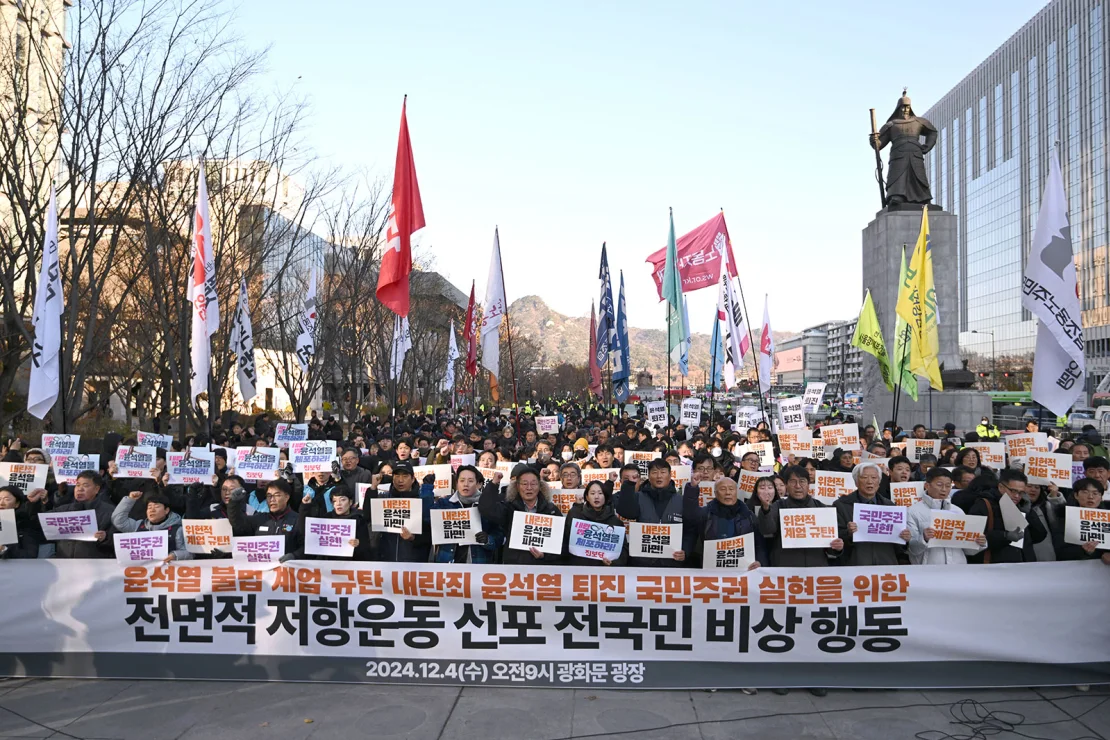South Korea is in the grip of intense political unrest following President Yoon Suk-yeol’s declaration of martial law late Tuesday night, which he was forced to rescind within hours due to widespread backlash and pressure from opposition parties.
A Night of Unrest
The crisis unfolded late Tuesday night, as most South Koreans were preparing for bed. President Yoon's abrupt announcement of martial law sent shockwaves across the nation. Opposition parties quickly convened in the National Assembly to vote for the withdrawal of the martial law declaration, branding it a severe threat to South Korea’s democratic values.
Protesters flooded the streets overnight, calling for President Yoon’s immediate resignation. Many viewed the declaration as a dangerous echo of South Korea’s authoritarian past, sparking widespread condemnation from both political leaders and the public.
Swift Retraction, Growing Political Fallout
Before dawn on Wednesday, President Yoon reversed his decision and lifted martial law. However, political analysts say the damage has already been done. Opposition parties have labeled the president’s actions as reckless and unconstitutional, signaling the beginning of impeachment proceedings against him.
Public and Political Backlash
Protesters, still gathered in large numbers, continue to demand Yoon’s resignation, accusing him of jeopardizing South Korea’s democracy. “This is not just about martial law; it’s about protecting the principles that define our nation,” said one protester in Seoul.
A Nation at a Crossroads
The martial law controversy has thrown South Korea into a state of political uncertainty. The fallout raises critical questions about the future of President Yoon’s administration, the stability of the country’s democratic institutions, and the path forward for the nation.
As South Korea grapples with this unprecedented political crisis, the coming days will likely determine the fate of Yoon’s presidency and the resilience of the nation’s democratic framework.










